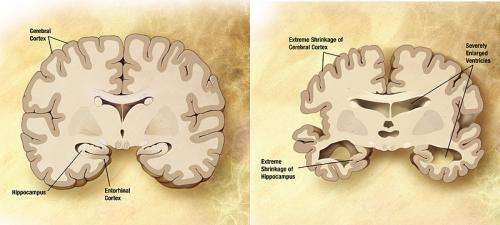
A new study reveals a possible biological reason that Alzheimer’s Disease (AD) progresses at different rates in different patients.
The study, which was led by Massachusetts General Hospital researchers, focused on tau, a protein found in the neurofibrillary tangles in the brain that are a well-known sign of AD.
Tau can undergo a variety of modifications during the course of the disease including phosphorylations. Researchers found that the presence of different forms of phosphorylated tau could explain why the disease has variable effects.
The study’s lead author is Simon Dujardin, PhD, post-doctoral research…


























